Category
- Burglary Alarm System
- Cable
- Closed Circuit Television System (CCTV)
- Fire Equipment
- Pepper Spray Vault/ATM Protection System
- Personal Security
- Physical Access Control
- Promotions
Popular
-
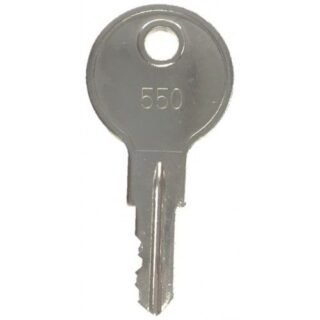 Gent Fire Alarm System Set of Keys for Key Switch Interface and MCP
Gent Fire Alarm System Set of Keys for Key Switch Interface and MCP
-
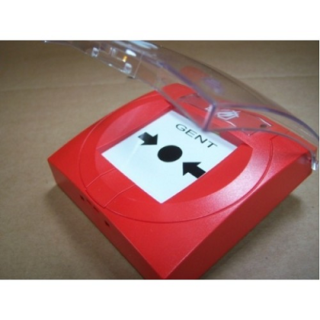 Gent Fire Alarm Vigilon Manual Call Point with Glass Element and Protective Cover (Excludes Back Box)
Gent Fire Alarm Vigilon Manual Call Point with Glass Element and Protective Cover (Excludes Back Box)
-
 Cutting-Edge Velocity Zeta Aspiration Smoke Detection Fire Alarm Panel
Cutting-Edge Velocity Zeta Aspiration Smoke Detection Fire Alarm Panel
-
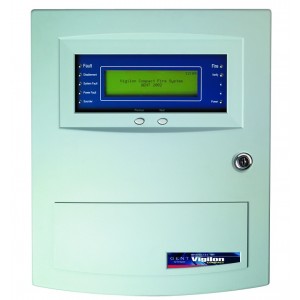 GENT ADDRESSABLE FIRE ALARM 1 TO 6 LOOP CONTROL PANEL
GENT ADDRESSABLE FIRE ALARM 1 TO 6 LOOP CONTROL PANEL
₦6,250,000.00Original price was: ₦6,250,000.00.₦6,170,000.00Current price is: ₦6,170,000.00. -
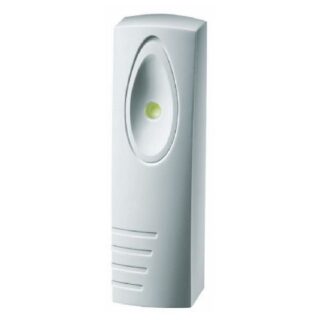 TEXECOM VERITAS IMPAQ E BURGLAR ALARM VIBRATION DETECTOR- WHITE
TEXECOM VERITAS IMPAQ E BURGLAR ALARM VIBRATION DETECTOR- WHITE
₦22,000.00Original price was: ₦22,000.00.₦18,500.00Current price is: ₦18,500.00. -
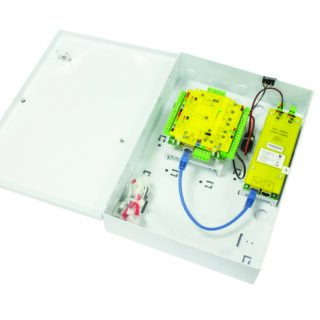 PAXTON ACCESS CONTROL NET2 PLUS 1 DOOR CONTROLLER – POE+, PLASTIC CABINET
PAXTON ACCESS CONTROL NET2 PLUS 1 DOOR CONTROLLER – POE+, PLASTIC CABINET
₦462,000.00Original price was: ₦462,000.00.₦458,000.00Current price is: ₦458,000.00. -
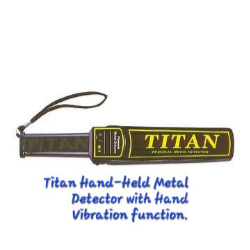 Concept Handheld Metal Detector with Vibration Function
Concept Handheld Metal Detector with Vibration Function
₦20,000.00Original price was: ₦20,000.00.₦19,000.00Current price is: ₦19,000.00. -
 Fisher Research Labs M-scope Walk-Through Metal Detector
Fisher Research Labs M-scope Walk-Through Metal Detector
₦4,600,000.00Original price was: ₦4,600,000.00.₦4,500,000.00Current price is: ₦4,500,000.00. -
 CONCEPT (Burglar Alarm) WIRELESS SIGNAL REPEATER
CONCEPT (Burglar Alarm) WIRELESS SIGNAL REPEATER
₦23,500.00Original price was: ₦23,500.00.₦21,500.00Current price is: ₦21,500.00. -
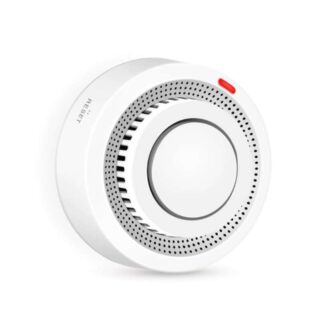 CONCEPT (Fire Alarm) TUYA WIFI SMOKE DETECTOR
CONCEPT (Fire Alarm) TUYA WIFI SMOKE DETECTOR
₦13,000.00Original price was: ₦13,000.00.₦11,000.00Current price is: ₦11,000.00.

Are you a property owner or landlord looking to secure your investment and protect your rental property from potential theft or damage?
Choosing the right security system is crucial to ensure the safety of your tenants and property. With numerous options available in the market, it can be overwhelming to determine which security system suits your needs best.
In this article, we will guide you through the process of selecting the perfect security system for your rental property. Whether you own a single-family home, apartment building, or commercial property, we have you covered. We will explore different types of security systems, such as alarm systems, surveillance cameras, access control systems, and more.
Not only will a reliable security system deter burglars and vandals, but it will also provide peace of mind for both you and your tenants. We will discuss the top considerations when choosing a security system, including budget, ease of installation, monitoring options, and technological features.
Don’t leave your rental property vulnerable to criminal activities. Learn how to select the right security system that fits your needs and keeps your investment secure.
Importance of security for rental properties
Security is paramount when it comes to rental properties. As a property owner or landlord, it is your responsibility to ensure the safety and well-being of your tenants. By investing in a robust security system, you not only protect your property from potential damage but also create a secure living environment for your tenants.
One of the primary reasons why security is crucial for rental properties is the increasing rate of theft and vandalism. Rental properties are often targeted by criminals due to the transient nature of the occupants and the assumption that security measures may be lacking. By installing a comprehensive security system, you can deter criminals and significantly reduce the risk of break-ins and property damage.
Additionally, a secure rental property also attracts high-quality tenants. Potential tenants are more likely to choose a property that prioritizes their safety and provides a secure living environment. This can result in reduced vacancy rates and increased rental income for property owners.
Investing in security measures not only protects your property but also provides peace of mind for both you and your tenants. Knowing that your rental property is equipped with the right security system gives you the confidence that you have taken the necessary steps to safeguard your investment.
Common security threats for rental properties
Before diving into the different types of security systems available, it’s essential to understand the common security threats that rental properties face. By identifying these threats, you can make informed decisions about the type of security system that best addresses your property’s vulnerabilities.
1. Burglaries: Rental properties are often targeted by burglars, especially if they perceive the property to be an easy target. Burglars may attempt to break in and steal valuable items, cause property damage, or even harm occupants.
2. Vandalism: Rental properties, particularly those that are vacant or have minimal security measures, are susceptible to vandalism. Vandals may damage property structures, deface walls with graffiti, or destroy landscaping.
3. Unauthorized access: Controlling access to rental properties is essential to ensure the safety and privacy of tenants. Unauthorized individuals may attempt to enter the property, posing a risk to the safety and security of the occupants.
4. Fire and safety hazards: Rental properties should also be equipped with fire and safety systems to protect tenants in case of emergencies. These systems include smoke detectors, fire extinguishers, and emergency exits.
Understanding the common security threats will help you select a security system that effectively addresses these risks and provides comprehensive protection for your rental property.
Types of security systems for rental properties
When it comes to securing your rental property, you have several options to choose from. Each type of security system offers unique features and benefits, catering to different property types and security needs. Here are some of the most common types of security systems for rental properties:
1. Alarm systems: Alarm systems are designed to detect unauthorized entry into a property. They consist of sensors placed on doors, windows, and other critical entry points. When a sensor is triggered, the alarm system emits a loud siren, alerting occupants and neighbors of a potential break-in.
2. Surveillance cameras: Surveillance cameras are an excellent deterrent and provide visual evidence in the event of a crime. They can be installed both indoors and outdoors to monitor activity around the property. Modern surveillance systems often come with features like motion detection, night vision, and remote access for real-time monitoring.
3. Access control systems: Access control systems regulate who can enter and exit a rental property. These systems typically use keycards, key fobs, or biometric identification methods to grant access. Access control systems are commonly used in apartment buildings and commercial properties to restrict entry to authorized individuals.
4. Smart home security systems: Smart home security systems integrate various security components, such as alarms, cameras, and door locks, into a centralized smart hub. These systems can be controlled remotely through a smartphone app, allowing property owners to monitor and control security settings from anywhere.
5. Security patrol services: In addition to electronic security systems, some rental properties may benefit from employing security patrol services. Security guards can provide physical presence and respond to emergencies or suspicious activities on-site.
Each type of security system has its advantages and considerations. It is crucial to evaluate your property’s specific needs and consult with security professionals to determine the most suitable system for your rental property.
Key factors to consider when choosing a security system
Choosing the right security system for your rental property involves considering several key factors. By carefully evaluating these factors, you can make an informed decision that meets your security needs and budget. Here are the top considerations when choosing a security system:
1. Budget: Determine your budget for installing and maintaining a security system. Consider both the upfront costs, such as equipment and installation fees, as well as ongoing monthly monitoring fees, if applicable.
2. Ease of installation: Consider the ease of installation for different security systems. Some systems may require professional installation, while others can be easily installed as a do-it-yourself (DIY) project.
3. Monitoring options: Decide whether you prefer self-monitoring or professional monitoring services. Self-monitoring allows you to receive alerts directly on your smartphone, while professional monitoring involves a third-party monitoring center that responds to alarms and alerts.
4. Technological features: Evaluate the technological features offered by different security systems. These may include mobile app integration, video analytics, smart home integration, and compatibility with other smart devices.
5. Expandability: Consider the scalability and expandability of the security system. If you plan to add more sensors or cameras in the future, ensure that the system can accommodate your future needs.
By carefully considering these factors, you can choose a security system that aligns with your budget, installation preferences, monitoring requirements, and desired technological features.
Wireless vs. wired security systems
When selecting a security system for your rental property, you will come across two primary options: wireless and wired systems. Each type has its advantages and considerations, so it’s essential to understand the differences between them. Here’s a breakdown of wireless and wired security systems:
1. Wireless security systems: Wireless systems use radio frequency signals to transmit data between devices. They are easy to install, as they do not require complex wiring. Wireless systems are ideal for rental properties, as they can be easily moved or expanded without damaging property structures. They also offer remote monitoring capabilities through smartphone apps.
2. Wired security systems: Wired systems, on the other hand, require physical wiring to connect sensors, cameras, and control panels. While they may be more challenging to install, wired systems offer a more reliable and stable connection. They are less susceptible to interference from other electronic devices and have a longer battery life for wireless components.
Both wireless and wired security systems have their pros and cons. Wireless systems provide flexibility and ease of installation, while wired systems offer a more stable connection and longer battery life. Consider your property’s specific needs, budget, and preferences to determine which type of system is the best fit.
Features to look for in a security system
When evaluating security system options, it’s important to consider the features and capabilities of each system. The right set of features can enhance the effectiveness and convenience of your security system. Here are some essential features to look for:
1. Motion detection: Motion detection sensors can trigger alarms or cameras when movement is detected in specific areas. This feature is particularly useful for outdoor surveillance, as it reduces false alarms triggered by animals or environmental factors.
2. Night vision: If you plan to install surveillance cameras, ensure they have night vision capabilities. This feature allows the cameras to capture clear footage even in low-light or dark conditions.
3. Two-way audio: Some security cameras and smart home security systems offer two-way audio, allowing you to communicate with visitors or potential intruders remotely. This feature can be useful for verifying identities or warning off suspicious individuals.
4. Mobile app integration: Look for security systems that offer mobile app integration. With a mobile app, you can remotely monitor your property, receive real-time alerts, and control security settings from anywhere.
5. Cloud storage: Consider whether the security system offers cloud storage for recorded footage. Cloud storage ensures that video recordings are securely stored off-site, preventing potential loss or tampering.
6. Smart home integration: If you have other smart home devices, such as smart locks or smart lights, choose a security system that seamlessly integrates with your existing smart home ecosystem. This allows you to control multiple devices from a single interface.
By prioritizing these features, you can select a security system that meets your specific needs and enhances the overall security of your rental property.
Cost considerations for a security system
Cost is an important factor to consider when choosing a security system for your rental property. It’s crucial to determine your budget and evaluate the costs associated with each system. Here are some cost considerations to keep in mind:
1. Equipment costs: Consider the upfront costs of purchasing the necessary equipment for the security system. This includes alarm panels, sensors, cameras, control panels, and other components. Compare prices from different suppliers to ensure you are getting the best deal.
2. Installation fees: If you opt for professional installation, factor in the installation fees charged by security system providers. Some providers may offer free installation as part of a package, while others may charge an additional fee.
3. Monitoring fees: If you choose professional monitoring services, determine the monthly monitoring fees. These fees cover the cost of 24/7 monitoring by a central monitoring station. Compare the fees from different providers to find the most cost-effective option.
4. Maintenance and servicing: Consider the ongoing maintenance and servicing costs of the security system. This may include replacing batteries, repairing faulty equipment, or upgrading the system as needed. Factor in these costs when evaluating the long-term affordability of the system.
While it’s important to consider the costs associated with a security system, remember that investing in a reliable and comprehensive system is a worthwhile investment to protect your rental property and ensure the safety of your tenants.
DIY vs. professional installation
When it comes to installing a security system for your rental property, you have the option to choose between DIY installation or professional installation. Each method has its advantages and considerations, so it’s important to evaluate your capabilities and preferences. Here’s a breakdown of DIY and professional installation:
1. DIY installation: If you are comfortable with technology and have basic handyman skills, DIY installation may be a suitable option. DIY installation allows you to save on installation fees and gives you full control over the setup process. Many security systems offer user-friendly installation guides and videos to assist you.
2. Professional installation: Professional installation involves hiring a trained technician to install the security system for you. This option is ideal if you prefer a hassle-free installation process or if you have complex security requirements. Professional installers have the expertise to ensure that the system is correctly set up and optimized for your rental property.
Consider factors such as your technical skills, available time, and the complexity of the security system when deciding between DIY and professional installation. If you are uncertain, consult with security system providers to understand the installation requirements and make an informed choice.
Tips for maintaining and managing a security system
Once you have selected and installed a security system for your rental property, it’s important to maintain and manage it properly to ensure its effectiveness. Here are some tips for maintaining and managing your security system:
1. Regularly test the system: Test the functionality of the security system regularly to ensure that all components are working correctly. This includes testing alarms, cameras, motion sensors, and access control devices. Regular testing helps identify any issues or malfunctions that need to be addressed promptly.
2. Update firmware and software: Keep the security system’s firmware and software up to date. Manufacturers often release updates that address security vulnerabilities or introduce new features. Regularly check for updates and apply them to ensure optimal performance and protection.
3. Replace batteries: If your security system uses battery-powered devices, such as sensors or cameras, regularly check and replace the batteries as needed. Weak or dead batteries can compromise the functionality of the system and leave your rental property vulnerable.
4. Educate tenants: If you have tenants in your rental property, educate them about the security system and how to use it effectively. Provide clear instructions on arming and disarming the system, as well as any specific guidelines for maintaining security.
5. Monitor and review footage: If your security system includes surveillance cameras, periodically review the recorded footage to identify any suspicious activities or potential security gaps. This can help you make adjustments to improve the overall security of your rental property.
By implementing these maintenance and management tips, you can ensure that your security system remains effective and provides the necessary protection for your rental property.
In conclusion, it’s all about ensuring the safety and peace of mind of your rental property. Securing your rental property should be a top priority as a property owner or landlord. By choosing the right security system, you can protect your investment, deter criminals, and create a safe living environment for your tenants.
Consider the common security threats faced by rental properties and evaluate the different types of security systems available. Take into account key factors such as budget, ease of installation, monitoring options, and technological features. Compare wireless and wired systems, and look for essential features like motion detection, night vision, and mobile app integration.
Don’t forget to consider the cost implications and decide between DIY and professional installation based on your capabilities and preferences. Once installed, maintain and manage your security system by regularly testing
Written by Adeoke Olanrewaju
Best offers
Join Risk Free
30 days refund
100% Safe
Secure Shopping
24x7 Support
Online 24 hours
Best Offers
Grab Now
Safe and Secured Payment
On all order over
Know Us

Safetech.hub is the newest online platform envisioned to provide 24/7 online platform for integrators, installers, and end users of Extra Low Voltage (ELV) systems in Nigeria
Read MoreBlog Updates

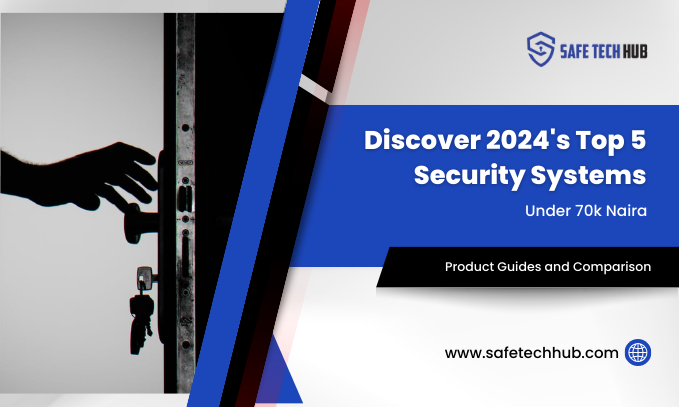
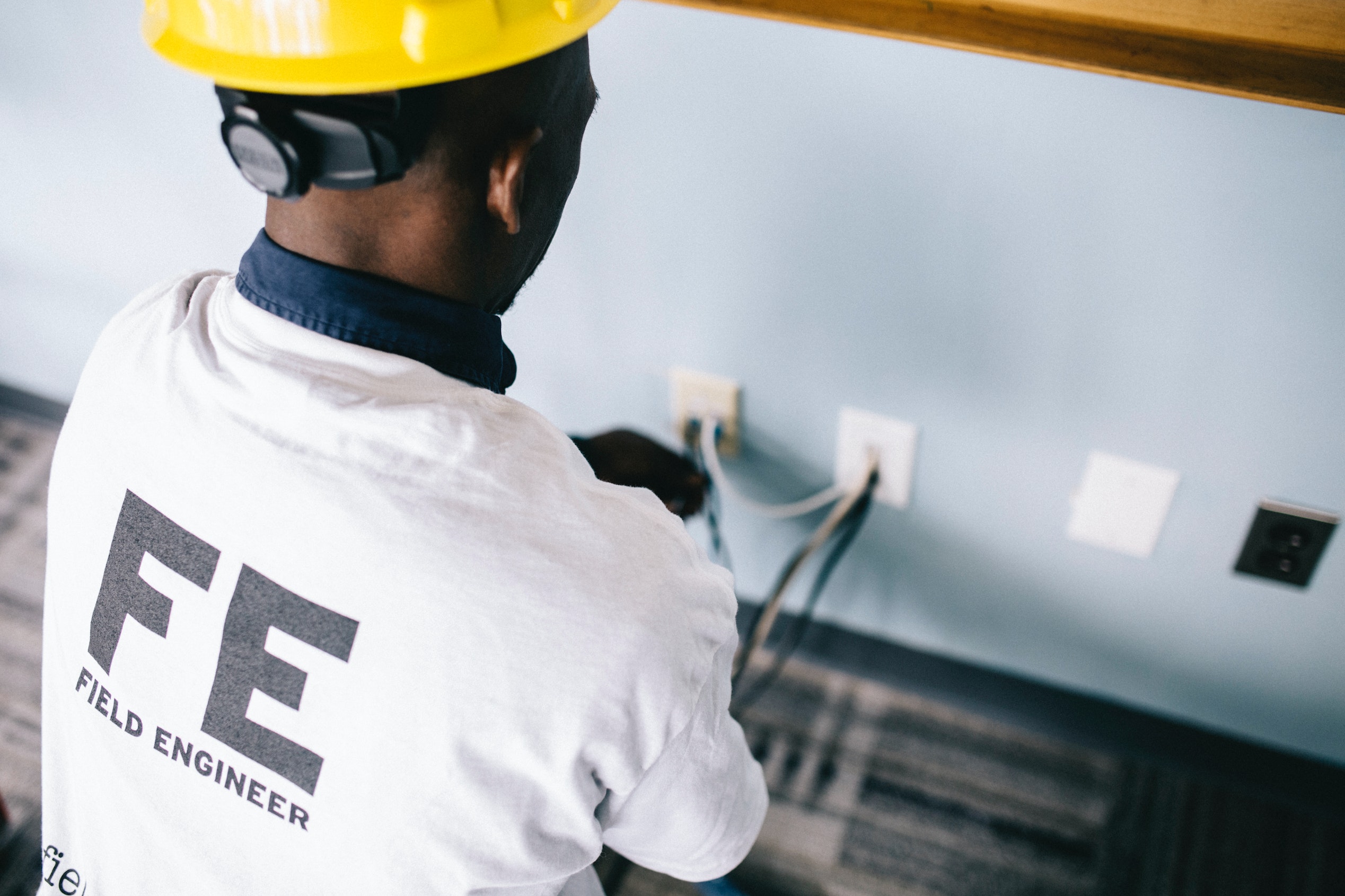
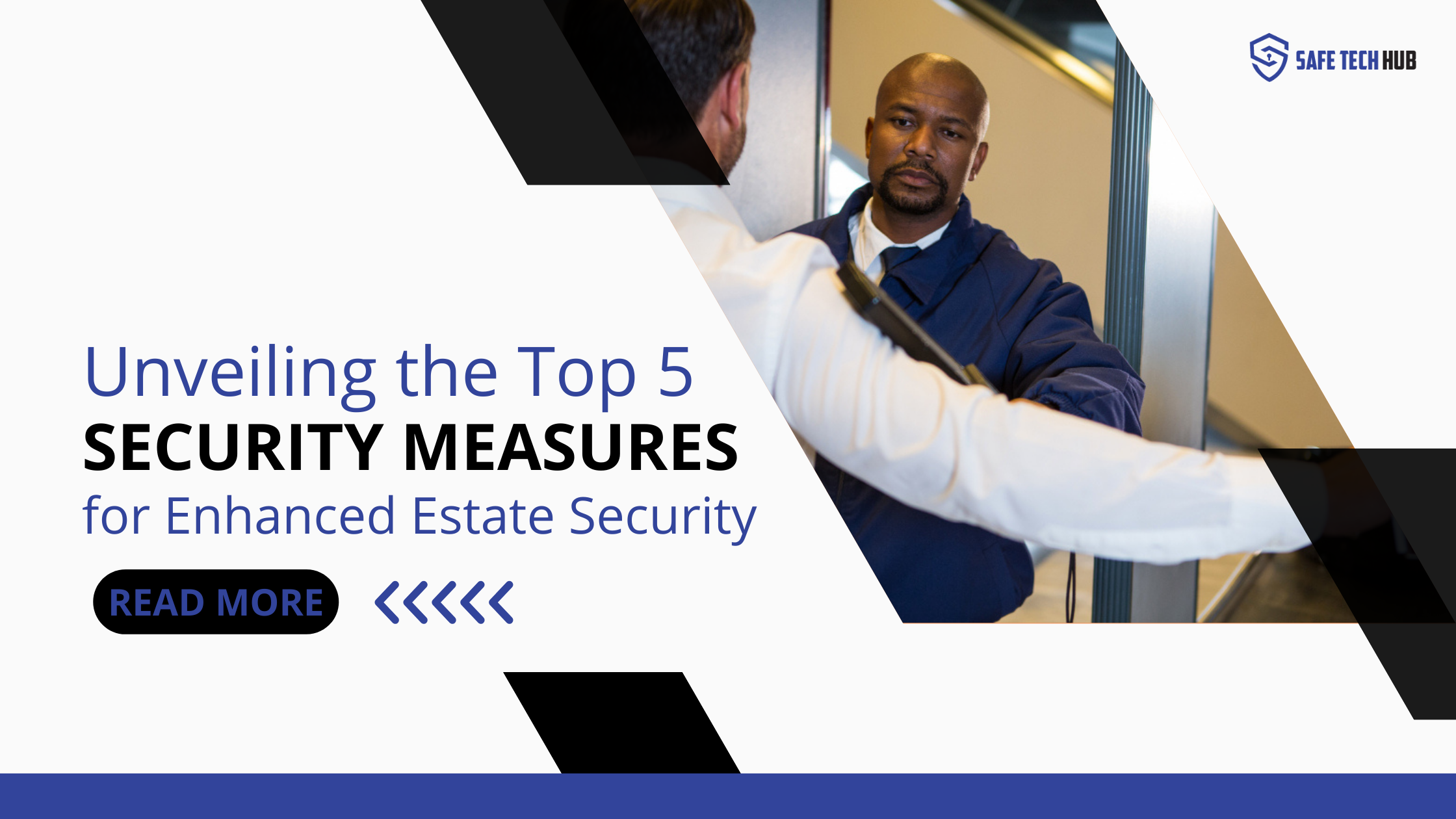


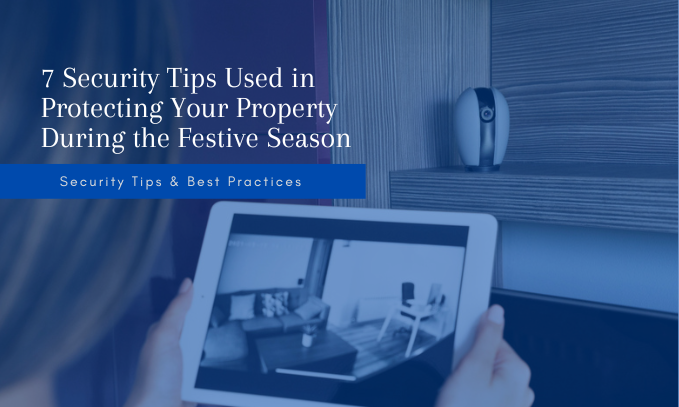
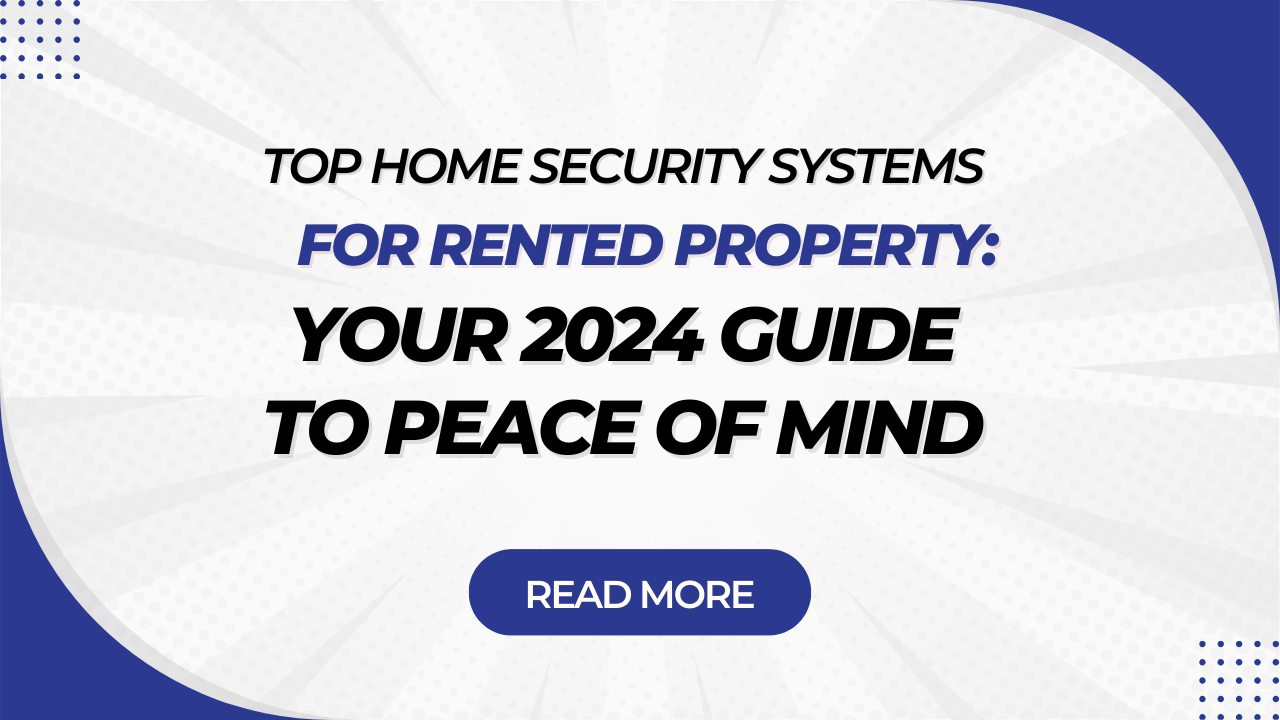
Leave a Reply